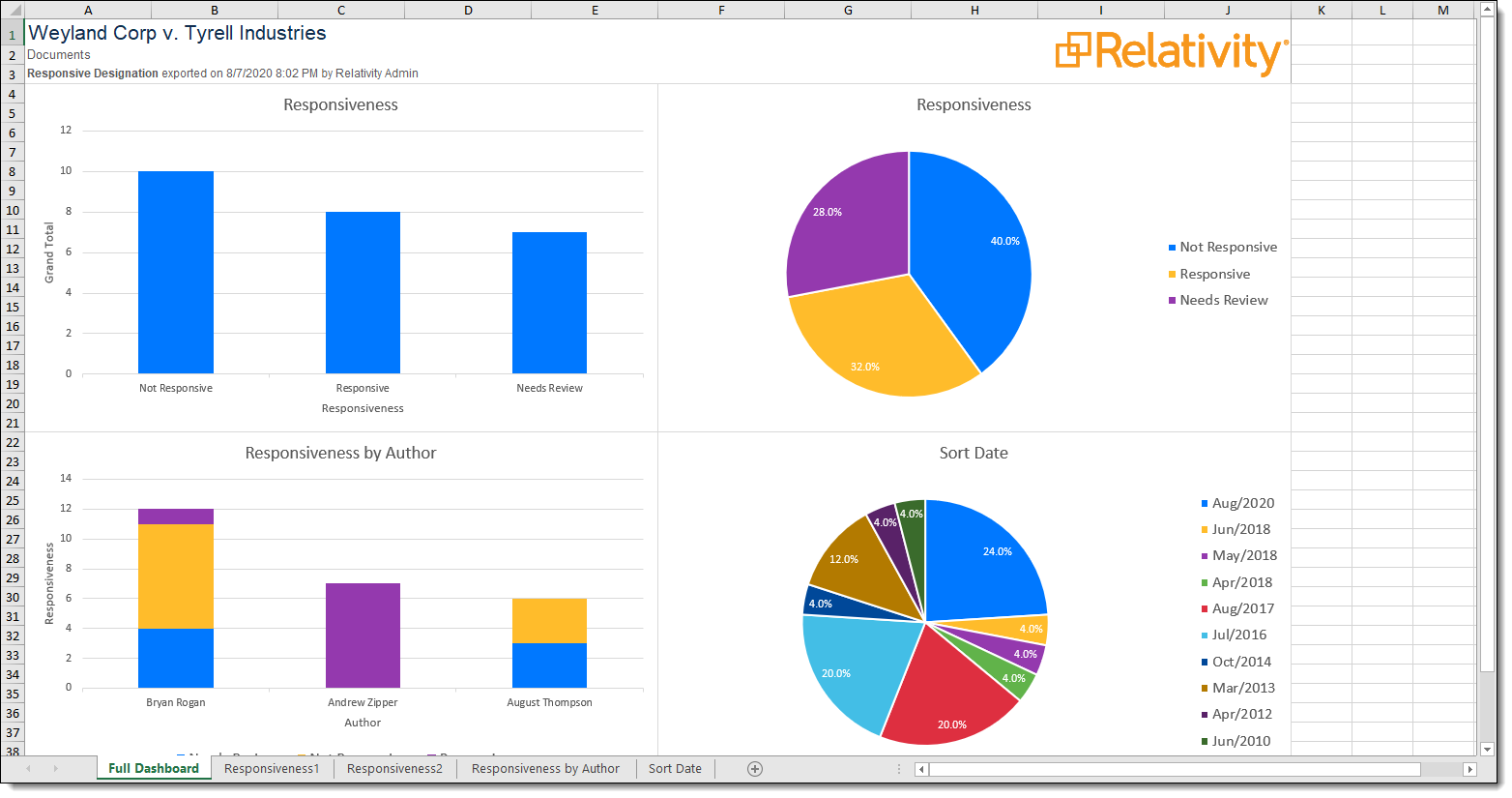
Relativity RelativityOne: Complete Buyer's Guide
Enterprise-grade, cloud-based eDiscovery platform
Relativity RelativityOne is an enterprise-grade, cloud-based eDiscovery platform that has evolved into a comprehensive AI-powered legal document review solution.
Market Position & Maturity
Market Standing
RelativityOne occupies a dominant position in the enterprise eDiscovery market, representing the cloud evolution of Relativity's established on-premise platform that has served the legal industry for over two decades.
Company Maturity
The platform's market maturity is evidenced by its comprehensive compliance certifications, including FedRAMP authorization for government deployments, ISO 27001, and SOC 2 Type II certifications[50][59].
Growth Trajectory
Growth trajectory evidence includes expanding AI capabilities through the aiR for Review module and continued investment in Azure OpenAI integration.
Industry Recognition
Market recognition comes through customer validation rather than industry awards, with named implementations from JND eDiscovery and CDS Federal Operations providing public evidence of platform effectiveness[50][56].
Strategic Partnerships
The platform's integration with Azure OpenAI demonstrates strategic partnerships with leading technology providers, ensuring access to cutting-edge AI capabilities while maintaining enterprise-grade security and compliance[52][53].
Longevity Assessment
Long-term viability is supported by Relativity's established market presence, comprehensive compliance framework, and strategic technology partnerships.
Proof of Capabilities
Customer Evidence
JND eDiscovery provides the most comprehensive customer evidence, documenting a transformation of complex antitrust litigation document review. Their implementation reduced 38,000-document analysis from 15+ weeks of manual review to under 70 hours using AI assistance, achieving 96% recall and 71% precision rates while delivering $85,000 savings and 750+ hours reclaimed on a single corporate matter[56].
Quantified Outcomes
Quantified performance metrics across implementations show consistent results: 70% reduction in privilege review time documented across multiple deployments, representing significant operational efficiency gains in one of the most resource-intensive aspects of legal document review[55].
Case Study Analysis
Implementation validation follows a proven 3-phase approach: prompt criteria development (1-2 weeks), sample validation (1 week), and full-scale processing. JND's experience demonstrates optimal resource allocation of 2 senior attorneys and 1 technical lead per implementation, providing a replicable framework for organizations evaluating deployment requirements[56].
Market Validation
Market validation includes the platform's ability to process diverse document types across different legal specialties. Evidence spans antitrust litigation, government compliance matters, and regulatory investigations, demonstrating versatility across high-stakes legal scenarios requiring different analytical approaches[50][56].
Competitive Wins
Competitive wins are evidenced through customer selection criteria, with JND highlighting 'accuracy and scalability' as decisive factors, while CDS emphasizes 'security and compliance alignment' for government implementations[50][56].
Reference Customers
Named implementations from JND eDiscovery and CDS Federal Operations provide public evidence of platform effectiveness[50][56].
AI Technology
RelativityOne's AI architecture centers on aiR for Review, an agentic AI control system that fundamentally reimagines legal document analysis through natural language processing. The platform leverages Azure OpenAI's GPT-4 Omni model to process attorney instructions in conversational language, eliminating the complex query syntax traditionally required for document review systems[52][53].
Architecture
The core technical innovation lies in the platform's approach to document processing: each document is analyzed independently using static prompt criteria, generating predictions with transparent rationale explanations that support legal defensibility requirements[52][53].
Primary Competitors
Primary competitors include specialized AI vendors like Harvey and Luminance, comprehensive platforms from Thomson Reuters and LexisNexis, and traditional eDiscovery providers adding AI capabilities.
Competitive Advantages
Competitive advantages include transparent rationale generation providing legal defensibility advantages over 'black box' AI systems, FedRAMP compliance positioning favorably for government-facing practices, and established eDiscovery infrastructure reducing implementation friction for existing Relativity users[50][52][59].
Market Positioning
Market positioning as an enterprise platform solution competes against both specialized AI vendors and comprehensive legal technology platforms.
Win/Loss Scenarios
Win scenarios favor organizations already using Relativity infrastructure, those prioritizing integrated workflow orchestration over standalone AI tools, and practices requiring FedRAMP compliance for government work.
Key Features

Pros & Cons
Use Cases
Integrations
Featured In Articles
Comprehensive analysis of AI Semantic Search for Legal/Law Firm AI Tools for Legal/Law Firm AI Tools professionals. Expert evaluation of features, pricing, and implementation.
How We Researched This Guide
About This Guide: This comprehensive analysis is based on extensive competitive intelligence and real-world implementation data from leading AI vendors. StayModern updates this guide quarterly to reflect market developments and vendor performance changes.
59+ verified sources per analysis including official documentation, customer reviews, analyst reports, and industry publications.
- • Vendor documentation & whitepapers
- • Customer testimonials & case studies
- • Third-party analyst assessments
- • Industry benchmarking reports
Standardized assessment framework across 8 key dimensions for objective comparison.
- • Technology capabilities & architecture
- • Market position & customer evidence
- • Implementation experience & support
- • Pricing value & competitive position
Research is refreshed every 90 days to capture market changes and new vendor capabilities.
- • New product releases & features
- • Market positioning changes
- • Customer feedback integration
- • Competitive landscape shifts
Every claim is source-linked with direct citations to original materials for verification.
- • Clickable citation links
- • Original source attribution
- • Date stamps for currency
- • Quality score validation
Analysis follows systematic research protocols with consistent evaluation frameworks.
- • Standardized assessment criteria
- • Multi-source verification process
- • Consistent evaluation methodology
- • Quality assurance protocols
Buyer-focused analysis with transparent methodology and factual accuracy commitment.
- • Objective comparative analysis
- • Transparent research methodology
- • Factual accuracy commitment
- • Continuous quality improvement
Quality Commitment: If you find any inaccuracies in our analysis on this page, please contact us at research@staymodern.ai. We're committed to maintaining the highest standards of research integrity and will investigate and correct any issues promptly.